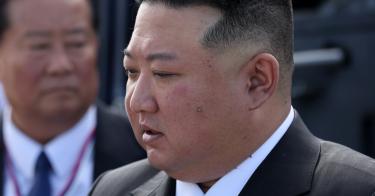For decades, Pyongyang declared it would never relinquish its nuclear arsenal, as it repeatedly violated 11 U.N. resolutions requiring the regime to abandon its nuclear and missile programs. This impasse has led some experts to advocate accepting North Korea as a nuclear weapons state, abandoning denuclearization as a negotiating goal and instead pursuing a freeze on the regime's nuclear weapons production.
Arms control proposals share a common theme in calling for yet more U.S. concessions to encourage Pyongyang to commit to undertaking a portion of what the regime already promised to do in eight previous failed agreements. All those accords collapsed because North Korea cheated or didn't fulfill its obligations.
There is no evidence that North Korea would be any more interested in arms control negotiations than in denuclearization talks. In the past, Pyongyang issued demands in return for returning to the negotiating table. But the regime is now unequivocal in rejecting all efforts to constrain its nuclear arsenal and, since late 2019, has rejected all U.S. and South Korean entreaties for any type of dialogue including about humanitarian assistance or tension-reduction measures such as restrictions on military activity near the demilitarized zone.
>>> China–Russia–North Korea Solidarity Poses Risk to the U.S. and Its Allies
Formally accepting North Korea as a nuclear weapons state would have significant negative repercussions. Doing so would defy U.N. resolutions requiring North Korea's denuclearization and remove the legal authority for the international community to impose and enforce sanctions for Pyongyang's violations.
Such a policy shift would also undermine the Non-Proliferation Treaty, contradict decades of U.S. nonproliferation policy and send a dangerous signal to other nuclear weapons aspirants that they can violate agreements and outlast international resolve to uphold their commitments.
Allies would worry that Washington might only seek to limit Pyongyang's intercontinental ballistic missiles that can reach the American homeland while allowing Pyongyang to retain hundreds of nuclear-capable short- and medium-range missiles. This would exacerbate allied concerns about the reliability of the U.S. extended deterrence guarantee and increase South Korean advocacy for an independent indigenous nuclear weapons program.
While the United States should continue to strive for a diplomatic solution to the North Korean nuclear threat, it is far more likely that Pyongyang will remain a challenge that requires a policy of deterrence, containment and compellence. The best U.S. policy is a comprehensive strategy of diplomacy, enforcing U.N. resolutions and U.S. laws, and deterrence until the nuclear, missile and conventional force threat is reduced.
This piece originally appeared in the CQ REsearcher


